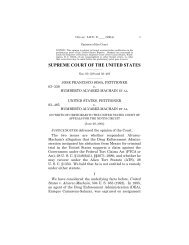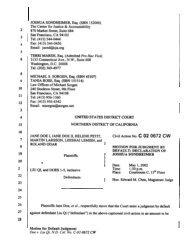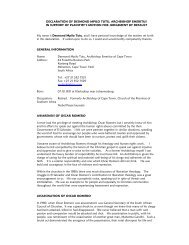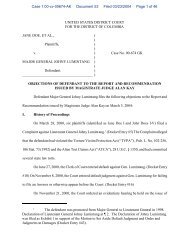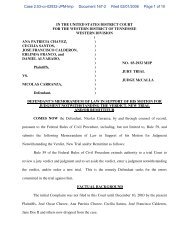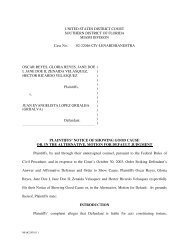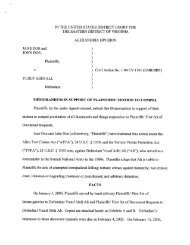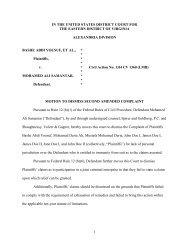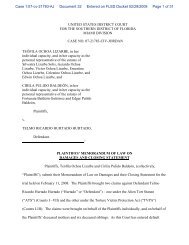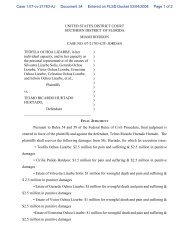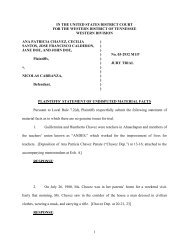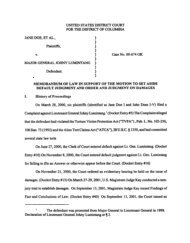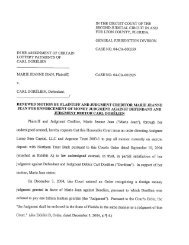Petitioner, v. Respondents. - Center for Justice and Accountability
Petitioner, v. Respondents. - Center for Justice and Accountability
Petitioner, v. Respondents. - Center for Justice and Accountability
You also want an ePaper? Increase the reach of your titles
YUMPU automatically turns print PDFs into web optimized ePapers that Google loves.
15permits the D.C. Circuit to determine only “whether thefinal decision was consistent with the st<strong>and</strong>ards <strong>and</strong>procedures specified” in a DOD military order that itselfexplicitly guarantees no rights (Pet. Br. 3), <strong>and</strong> “whether theuse of such st<strong>and</strong>ards <strong>and</strong> procedures to reach the finaldecision is consistent with the Constitution <strong>and</strong> laws of theUnited States.” § 1005(e)(3)(D). Nothing in this languageauthorizes the court of appeals to determine whether thetribunals are lawfully constituted, whether petitioner fallswithin their jurisdiction, or whether the commission isconsistent with an international treaty. And although theGovernment argues in general terms that the DTA providesan adequate substitute <strong>for</strong> review by habeas or m<strong>and</strong>amus,see Mo. Dis. 22, it also asserts that the provisions of the Act“do more than remove jurisdiction, but…also limit the scopeof cognizable claims,” id. at 19 n.9, all the while taking painsto avoid stating that petitioner’s claims would fall within thescope of review af<strong>for</strong>ded under that statute. The limitedscope of review only further supports the argument thatCongress did not intend to apply the DTA’s jurisdictionstrippingprovisions to this case. Otherwise, Congress notonly would have <strong>for</strong>eclosed this Court’s jurisdiction to hearHamdan’s claims, but it would have <strong>for</strong>ever prejudged themerits of the questions on which this Court grantedcertiorari, an unlikely proposition in the abstract, <strong>and</strong> awholly unwarranted conclusion in light of the absence ofany clear congressional intent to that effect.The cases relied upon by the government bear not even apassing resemblance to the DTA in this respect. All involved“[s]tatutes merely addressing which court shall havejurisdiction to entertain a particular cause of action” since“[s]uch statutes affect only where a suit may be brought, notwhether it may be brought at all.” Hughes Aircraft Co. v.United States ex rel. Schumer, 520 U.S. 939, 951 (1997) (internalcitations omitted). Such statutes “usually ‘take[] away nosubstantive right but simply change[] the tribunal that is tohear the case.’” Id. (quoting L<strong>and</strong>graf, 511 U.S. at 274). 12 Thus,12 The government, ignoring the distinction drawn in Hughes Aircraft,cites Republic of Austria v. Altmann, 541 U.S. 677, 693 (2004). But Altmann




